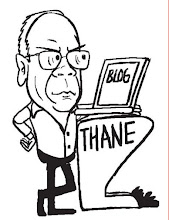Lalit Bhanot, despite all the inefficiencies his Commonwealth Games Organising Committee has shown put the finger on the number: India is not a country with high enough standards of hygiene which other civilisations would find acceptable.
One point he missed, which was of some consequence with respect to the CWG 2010 was the sense of time which is largely missing in India. Time is stretchable to the extent that Indian Standard Time (IST) has been lampooned as Indian Stretchable Time, no less by Indians themselves. That is perhaps a healthy way to laugh at oneself but in the contest of the CWG 2010, we are being laughed at.
The point is that time is of the essence in everything and I have generally been conscious of that. Most often than not I am on time, possibly a few minutes before the appointed minute. The importance was stressed by Manohar Joshi, Maharashtra's chief minister when I caught him at the steps of his official bungalow years ago and engaged him in a conversation, seeking to ferret out some significant piece of information. He gamely stood there and tried to help but the time available was not enough; he had to be present at a public event and wanted to leave.
He threatened me with a simple statement. If I engaged him for a whit longer, and he was late for his engagement, he would announce that I was responsible. "I would do it with you full name and designation!" he said. That shook me.
Did a minute's delay matter? Yes, indeed, it did, he said. If you are late and another is waiting, it shows disrespect to another man's precious commodity which cannot be earned and hoarded again: TIME.
That moment I fully learnt my lesson to the extent that if I am late by a minute, I shiver at the prospect of robbing someone of his treasure. It is another matter what the other guy does with his time but I cannot recklessly poach on it.
So much so, even for cocktails which are generally "7 pm onwards", the attempt is to be there on the dot. And by doing so a whole lot of gain has been made over the years. Other early birds who trickle in early are also looking around and that is the best moment to get to shake hands, know them and what Rotarians call "build fellowship". It may not often benefit me but it at least indicates who can be approached again for anything useful. There can be a kind of sieving, the grain can be discovered amid the chaff. Haven't I often heard my wife complain when she is hastened to get ready for an event she too was to attend? Her blunt point: Are you going there to set the dishes?
Hard to explain but she sees a cocktail as something different - people just drift around and nothing worthwhile ever happens. A plastic smile, a reluctant shake-hand and then drift to another group. Unless some known friends unmet for a spell are going to be around.
Importance of time has been explained enough. But as a journalist I have often found that public figures, who decide on policy and help implement them, are most often - bar a few exceptions like Joshi - late and couldn't give a tinker's damn if the audience was waiting. Imagine the collective time lost!
Likewise, the time lost in getting the CWG ready for the appointed date. That silly minister for sports, MS Gill thought that it would all be done in time like most Indian weddings are, which to mind is a huge confusion regardless of how well it is organised. Even the best of weddings have flaws. His predecessor, Manishankar Iyer did not thinks sports was important enough and how he hated it and allowed quite a huge chunk of valuable time, measured in years out of the seven provided on a platter, to lapse.
But even in the few years that was available after Iyer's spell, there was sufficient on the plate to dip into and organise the games without much confusion. But the innate ability of the Indians to while it away and then get into a rush seems to ingrained in the DNA that we can do anything at all only if it is in a crisis mode. Which the media ensured was indeed pushed into a crisis mode. One of the few times the media did well - thank you!
But we cannot afford to go on like this. We cannot plan only for the events. We need to plan for the things after the games. What happens to the expensive - bloated by unreasonable invoices possibly - stadia that have been built? Would we be able to convert them into something that helps spin something positive out of them, like the Bird's Nest stadium in Beijing built for the Olympics which is a huge water park? I am sure when the stadium was planned, the uncanny Chinese had the contingency plan ready - it is about a year since that water park has been bringing in hoards of the population who spend and have a whale of a time.
It was alright to imagine that we can do better than the Chinese. To do that, we have to learn from the Chinese. If we had, the guys who messed with the CWG 2010, the time and money spent, would not be around there facing the cameras and getting excrement on their faces which they know how to wipe off and smile. They would have been punished. But then, even here we waste time don't we?
Knowing how this country reacts to misfortunes, I think I too wasted my time fulminating.
Or did I?
